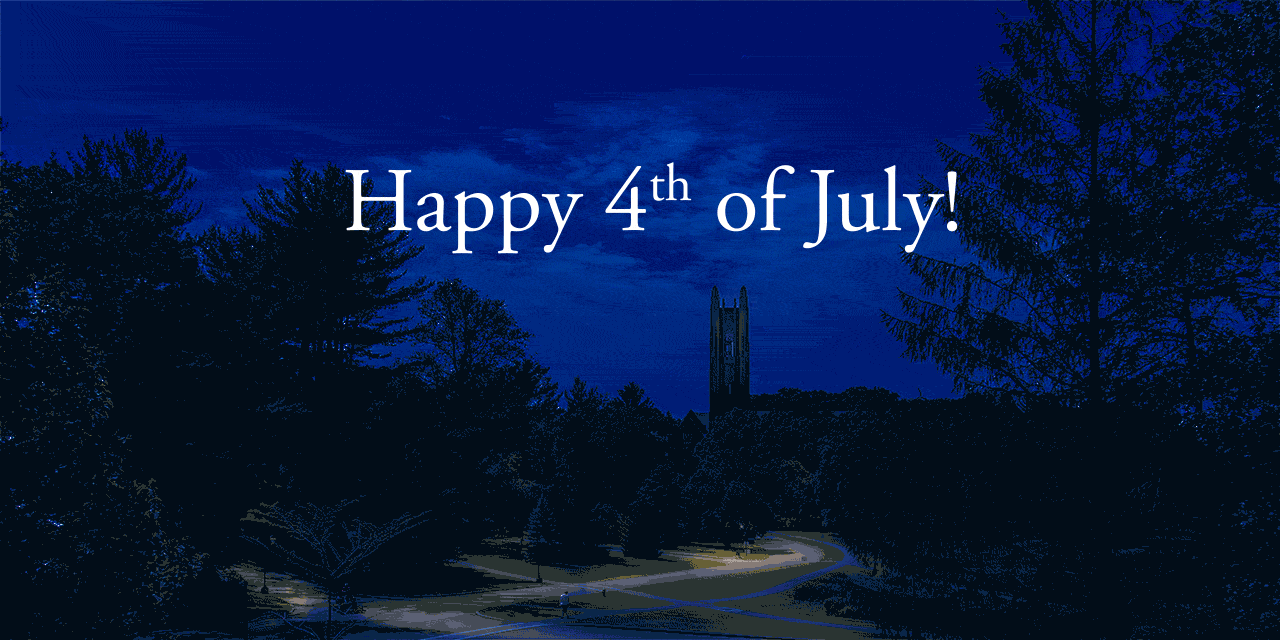Wellesley Celebrates “America the Beautiful” and Sisterhood

Tonight, many towns and cities across the U.S. will celebrate Independence Day with outdoor concerts followed by fireworks. One of the most popular patriotic songs in American history has a Wellesley connection: “America the Beautiful,” written by Katharine Lee Bates, class of 1880.
“I love this song,” said journalist Lynn Sherr ’63 in a 2001 interview with ABC News just after the release of her book America the Beautiful: The Stirring True Story Behind Our Nation’s Favorite Song. “I think it’s simple, I think it’s emotional, and I think it talks about a country, a land, and its people—not just about a flag, not just about a battle. It doesn’t talk about conquest. It talks about the possibilities of this nation.”
Bates, a poet and an English professor at Wellesley from 1885 to 1925, was inspired by scenery she saw as she traveled to Colorado to teach a summer course. “She was on a train going through Kansas on the Fourth of July in 1893, and she saw wheat waving in the wind, golden wheat … She got to Colorado. She saw the Rocky Mountains, purple gorgeous mountains … This trip was giving her fodder for the greatest poem she would ever write,” explained Sherr.
Bates’s four-stanza poem was published as “America” in the July 4, 1895, issue of the Congregationalist, a weekly church publication in Boston. In 1904, a revised version, sans title, appeared in the influential Boston Evening Transcript, which challenged composers to “fit this noble poem to music.” In 1910, the poem was published in the book Fellowship Hymns, along with the music of composer Samuel A. Ward’s hymn “Materna,” the tune to which we sing it today. One year later, Bates published the finalized version of the poem, as we know it, in a book called America the Beautiful and Other Poems.
While Bates was initially surprised by the song’s popularity, she later wrote that the hold “it has upon our people, is clearly due to the fact that Americans are at heart idealists, with a fundamental faith in human brotherhood.”
That idea resonates here at Wellesley, where the word “brotherhood” is changed to “sisterhood” when students sing the song at Stepsinging, convocation, commencement, and other occasions.
|
America (1895) O beautiful for halcyon skies, O beautiful for pilgrim feet O beautiful for glory-tale O beautiful for patriot dream |
America the Beautiful (1911) O beautiful for pilgrim feet, O beautiful for heroes proved O beautiful for patriot dream |



